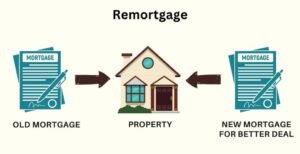
So, you’ve found your dream property – a place that sparks joy and whispers “welcome home.” The viewing was amazing and it’s time to finally secure the deal (hopefully!). You need to make an offer on the property, and you’re desperate to make sure its accepted. This can feel like a delicate dance, a balancing act between getting a good deal and securing the property.
Before you fly in with an offer above asking price (in hopes that will secure the deal), this guide will equip you with the knowledge and strategies to navigate the negotiation process with confidence.
Know Your Numbers: Research is Your Secret Weapon
Market Value: Research similar properties that have recently sold in the area. This gives you a strong understanding of the property’s true market value. It will keep you from offering more than the property is really worth, and can also help you spot a property that’s underpriced!
Estate Agent Valuation: Consider the estate agent’s valuation, but remember, they represent the seller. Factor in a potential negotiation buffer and don’t feel obliged to offer the asking price or more (even if that’s what the estate agent recommends).
Hidden Costs: Don’t forget to factor in additional costs like stamp duty, surveying fees, moving costs and potential renovation expenses.
Crafting Your Offer: Be Strategic and Confident
Start Below Asking Price: In most cases (especially in a lower demand property market), starting slightly below the asking price is standard practice. The exact percentage depends on your research and local market trends. The worst they can say is no, and unless the demand for the property is ridiculously high, you can usually get a second bite of the cherry.
Consider the Urgency: Is the seller in a rush? A tight timeline for the seller might influence your offer strategy (a.k.a. potential discount opportunity!).
Condition of the Property: Highlight any repairs or improvements needed in your offer, potentially justifying a lower starting point.
Written Offer with Clear Terms: Present a formal written offer (usually by email) outlining your proposed purchase price, completion date, and any specific conditions (e.g., subject to survey). Even if you made the offer in person to the estate agent, or on the phone, be sure to follow up with a formal email confirming the offer details, as this gives you evidence of the offer made.
The Negotiation Tango: It’s a Two-Way Street
Be Prepared to Counteroffer: The seller might respond with a counteroffer. Be prepared to negotiate back and forth until you reach a mutually agreeable price.
Highlight Strengths of Your Offer: If you’re a serious buyer with a strong financial position, emphasise this during negotiations.
Be Patient and Professional: Negotiation takes time. Maintain a calm and professional demeanor throughout the process. Even if your nerves have you shaking like a leaf, keep your cool and don’t let the estate agent catch wind of your true position (as they might use it against you in negotiations).
Know Your Limits: Set a realistic budget and stick to it. Don’t get swept up in the emotional whirlwind and overpay.
The Plot Twist: Leverage the Power of the Property Survey
A Window of Opportunity: While an initial offer is agreed upon, it’s usually not legally binding at this stage. It only becomes legally binding much later at the stage formally called “exchange of contracts” (your solicitor/conveyancer should advise you on this).
The Property Survey: Once you’ve commissioned a property survey, it can reveal unexpected issues – structural problems, damp, or outdated electrics.
Renegotiation Time: Armed with the survey report, you can approach the seller with evidence of these issues. This gives you leverage to renegotiate the original offer based on the required repairs, potentially securing a lower purchase price.
Remember: Negotiating an offer is a process, not a one-time event. By doing your research, crafting a strategic offer, and remaining confident yet flexible, you can increase your chances of securing your dream home at a fair price. So, put on your dancing shoes, and get ready to dance your way to a successful property purchase!






